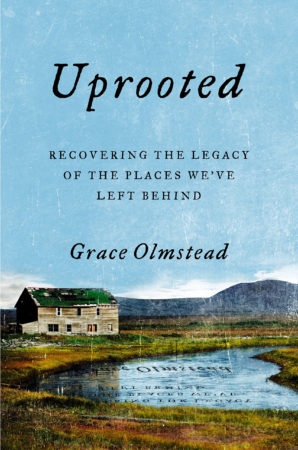 Grace Olmstead, a native of rural Idaho, now lives in Washington D.C., with her husband and three children. In Uprooted she examines the so-called brain drain in which those who can, leave behind the limited opportunities of home in favour of America’s urban centers. Those left behind in communities like Emmett, Idaho, are increasingly older, while the younger folks struggle to make ends meet. When Donald Trump was elected president in 2016, there was a small, if brief industry that arose to understand those that populated America’s poorer, rural areas. Many attempts were condescending, others abandoned before they came to fruition, with some pundits of a sympathetic bent wondering whether rural America even mattered to the country’s elites. Olmstead’s combination of memoir and sociological examination is sympathetic and deserves to be read. She explores themes of what is owed to a place and its past through the small agricultural community she knew growing up. “This land matters,” she writes. “And all its roosts that sink deep into this ground, lending strength and life to this oil, will matter long after we are gone.” Olmstead returns repeatedly to the idea of soil and its serves as a metaphor for the communities like the one of her youth. She writes of the “microbial villages” that populate dirt and says “Every time we tear roots out of the soil, we threaten the networks that provide structure and life to this plot of Earth.” So, too, are the personal support networks that help individuals live meaningful lives uprooted when a loved one leaves for the big city. The books might be too anti-free market for some but there is no questioning that capitalism can damage communities, and her treatment of race might be too politically correct for some readers. There is a tension between strong social cohesion in rural communities for which she longs and the insularity she knee-jerk labels as bigotry that she never quite grapples with honestly or fully. Still, there is room for a Walker Percy or Wendell Berry conservative today, one that frets about the personal and community costs of progress, and about the identities severed from the people and places from which we came.
Grace Olmstead, a native of rural Idaho, now lives in Washington D.C., with her husband and three children. In Uprooted she examines the so-called brain drain in which those who can, leave behind the limited opportunities of home in favour of America’s urban centers. Those left behind in communities like Emmett, Idaho, are increasingly older, while the younger folks struggle to make ends meet. When Donald Trump was elected president in 2016, there was a small, if brief industry that arose to understand those that populated America’s poorer, rural areas. Many attempts were condescending, others abandoned before they came to fruition, with some pundits of a sympathetic bent wondering whether rural America even mattered to the country’s elites. Olmstead’s combination of memoir and sociological examination is sympathetic and deserves to be read. She explores themes of what is owed to a place and its past through the small agricultural community she knew growing up. “This land matters,” she writes. “And all its roosts that sink deep into this ground, lending strength and life to this oil, will matter long after we are gone.” Olmstead returns repeatedly to the idea of soil and its serves as a metaphor for the communities like the one of her youth. She writes of the “microbial villages” that populate dirt and says “Every time we tear roots out of the soil, we threaten the networks that provide structure and life to this plot of Earth.” So, too, are the personal support networks that help individuals live meaningful lives uprooted when a loved one leaves for the big city. The books might be too anti-free market for some but there is no questioning that capitalism can damage communities, and her treatment of race might be too politically correct for some readers. There is a tension between strong social cohesion in rural communities for which she longs and the insularity she knee-jerk labels as bigotry that she never quite grapples with honestly or fully. Still, there is room for a Walker Percy or Wendell Berry conservative today, one that frets about the personal and community costs of progress, and about the identities severed from the people and places from which we came.




